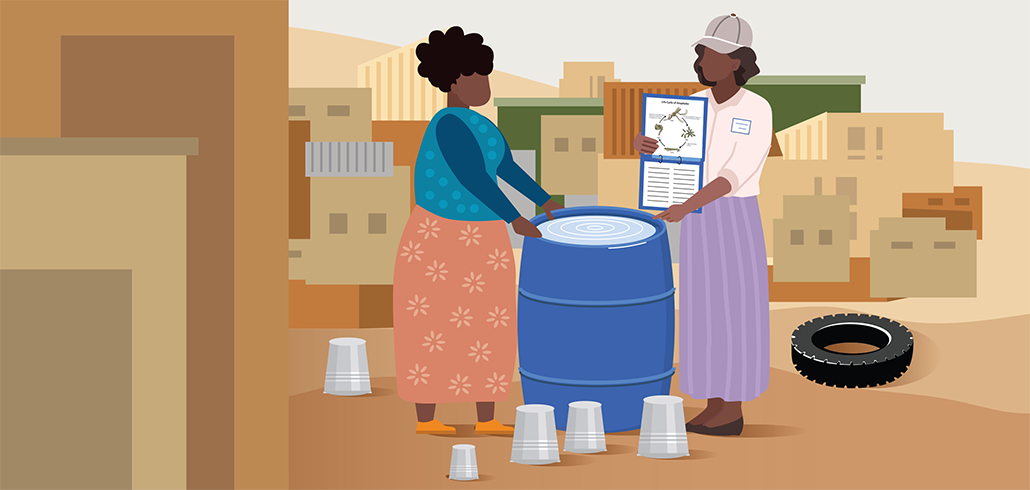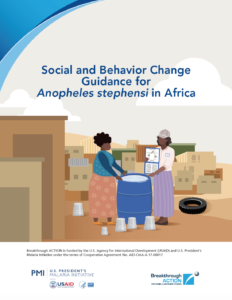
Anopheles stephensi, a dominant malaria vector in south Asia and Arabian Peninsula, has been identified by researchers in Africa in recent years, and has the potential to threaten malaria control and elimination efforts. Social and behavior change will play a critical role in the response to this growing threat. This document provides evidence-based guidance on individual, household, and community level behaviors for potential support of An. stephensi mitigation and control interventions in Africa.


